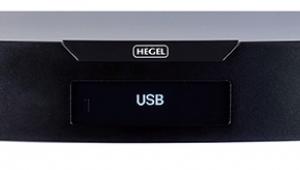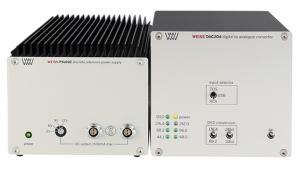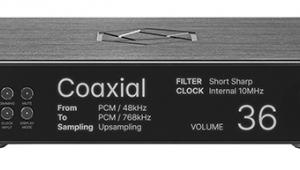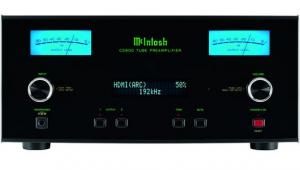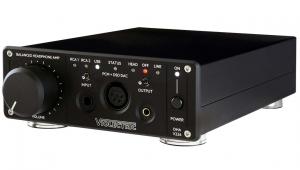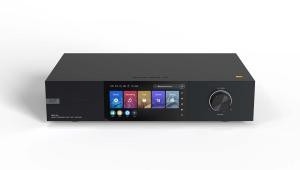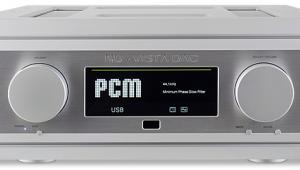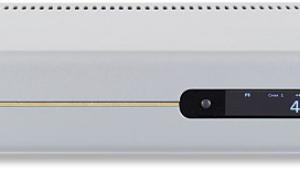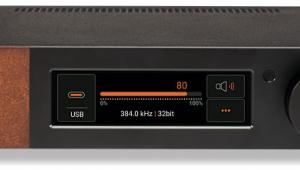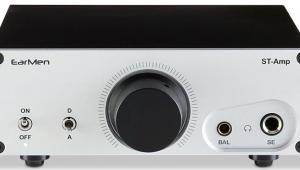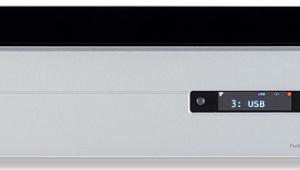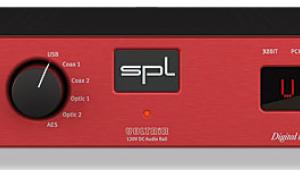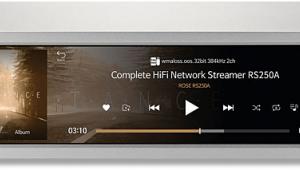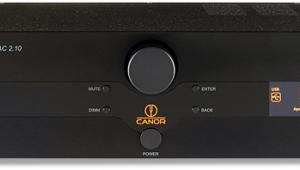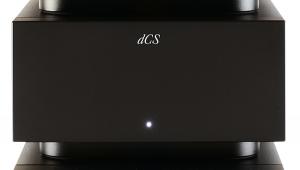Cambridge Audio DacMagic 200M USB/Wireless DAC Page 2
![]() Brave Heart
Brave Heart
And that's about all there is to the DacMagic 200M: power comes from a plugtop 12V DC supply, and analogue outputs come in the form of unbalanced RCAs and balanced XLRs, plus a standard 6.35mm headphone socket, the last being fed from its own Class AB amp and designed to offer a low source impedance, all in the cause of better headphone drive. And whether being used as a source component into a conventional amp or preamp, as a preamp in its own right, or as a headphone amplifier, the 200M proves an enthusiastic performer – yes, one that's a little light in the bass compared with DACs with a heftier price-tag, but all the same a fine-sounding unit for the money.
It's at its best used with a computer audio source fed straight into the USB-B port and connected via its balanced outputs, which have just a little more conviction in the low end and a very slight edge when it comes to detail and space. That said, even when fed via Bluetooth and delivering music via the unbalanced RCAs, it's listenable enough – well, given the slightly parched sound via the wireless link.
The Ashkenazy/Solti/Chicago SO recording of Beethoven's 'Emperor' Concerto [from Decca 443 723-2] proves quite a challenge for any system, it being pretty 'hot' in its depiction of the orchestra, but while the 200M is a little lightweight and brash at times, it gets to the heart of the performance, particularly in the delicate second movement, which sounds refined and moving, with good scaling between the 'band' and the soloist. You can soften and smooth things a bit with the 'Slow' filter setting, but this is at some cost to the sense of space – it may be useful if you find the sound overly brash, but with another recording it can make things a bit dull.
Ready To Burst
The same combination of detail and communication is also in evidence with the intricacies of Philip Glass's repeating musical patterns in the Stuttgart Opera recording of Akhnaten [CBS Masterworks 42457]. Here the Cambridge Audio DAC can sound just a little dry with the triumphal percussion of the opening act, when a tad more fullness and slam might not go amiss, but it unravels the multiple layers of this mid '80s recording by the ensemble for which the work was commissioned – so there's certainly no shortage of detail.
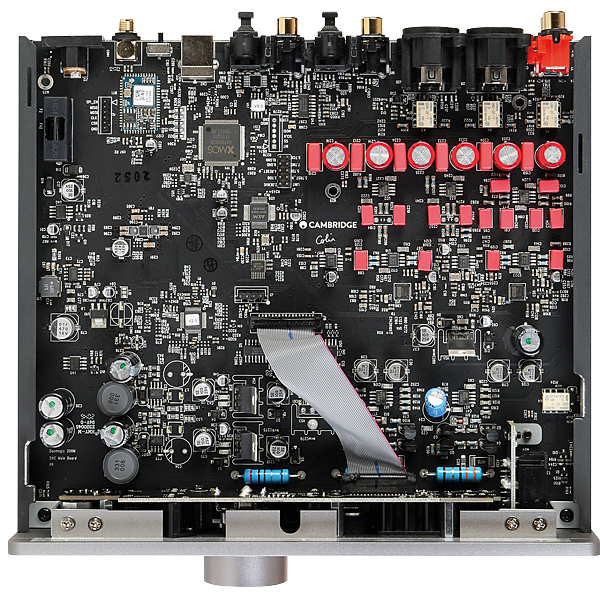
However, this little DAC can certainly rock out when required, its clarity serving well the dense mix of King Crimson's 1995 'comeback' album THRAK in its more recent remastering [Discipline Global Mobile KCSP13]. There's a lot going on in the tracks here, from the opening 'Vrooom' to the chug of 'Dinosaur', and it's to the 200M's credit that its possible to listen in to the superb musicianship on offer while still enjoying the massive overall effect of the set.
And with Jean-Michel Jarre's atmospheric Amazônia [Columbia/Sony 19439858232], which combines recreated 'natural' sounds with Jarre's usual blend of soft electronica, the 200M's open, explicit sound is heard to good effect, both with the sweeps of keyboard and the occasional bursts of percussion. The levels of information on offer elevate the album above mere ambient noodling, and that's especially true when playing the alternative binaural mix. The latter really creates an immersive effect when played via Cambridge Audio's 200M headphone output into any of the Focal and B&W headphones that I had to hand. In particular, the punch and drive of the Focal Clear [HFN Mar '18] complemented the 200M's balance exceptionally well.
The effect is both uncannily three-dimensional and exceptionally involving, adding a further layer of interest to the music. Again, there is the prospect of more bass weight with some rival compact – albeit costlier – designs, but the DacMagic 200M remains a reliable performer, and an entirely 'musical' one too.
Hi-Fi News Verdict
This DacMagic is no giant-killer, but it lives up to the precedent of its illustrious forbears with an attractive combination of solidity of build, ease of use and performance. It's excellent as a 'desktop audio' device, and drives headphones extremely well and to good effect, but can also justify its existence in a main audio system. Its sound may be a little on the light side, but it remains detailed and rewarding.
